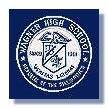 |
WHOA The "Home for Christmas" Crier No. 1
|
 |
 |
WHOA The "Home for Christmas" Crier No. 1
|
 |
| The following is a reproduction
of an original Clark AFB Philippine Flyer, Newsletter #81, describing the
dramatic events leading up to and following the eruption of Mt. Pinatubo.
Photographs have been added from various sources.
Original copy
contributed by Vincent J Slupecki, Wagner HS Class of 1970
|
| 4 Philippine Flyer |

We're Subic-bound! By midmorning Monday, June 10, when the evacuation was in full swing, cars and trucks stretched along the highway from Clark to Subic. As our people poured through the gates at Subic, registering them And finding housing was our top priority. An Air Force command post In Subic's enlisted club became the central point for all Air Force operations there. Evacuees lined up at the club while Air Force and Navy personnel and services experts worked to find them homes. But there were too many people for the available quarters, so a call for help went out...and the Navy responded. More than 1,100 Navy families generously opened their homes to us. The place was bursting at the seams, but within 36 hours, all evacuees had roofs over their heads. Then came Black Saturday...and disaster. The typhoon caused unusual winds that dumped 6-10 inches of ash on Subic, devastating the already over stressed facility. Tragically, two girls one American, one Filipino --lost their lives when the building they were in collapsed. Power, water and even food were scarce. Clearly, something had to be done. That's where Operation Fiery Vigil came in. |
 To relieve the strain on people and resources the decision was made to evacuate most of Clark's military personnel, civilians and families, as well as Subic's families. The evacuation began June 17. Navy ships, including the oldest aircraft carrier, U.S.S. Midway, and the newest, U.S.S. Abraham Lincoln loaded up with evacuees and sailed to Cebu. From there, Air Force and commercial charter planes flew our friends and families to Andersen AFB Guam, then on to Hickam AFB, Hawaii, and finally to McChord AFB, Wash., or Travis AFB, Calif. All along the way, from the sailors to the flight crews to the volunteers at each stop, people treated our evacuees with kindness, caring and friendship. They walked pets, baby-sat kids, and shared food, clothes, cars and homes. The outpouring of support and love from our military family will be forever remembered by the almost 20,000 who made the difficult journey. At the stateside ports, special personnel teams handed out assignments so our people could get settled quickly. Families whose sponsors were still here In the ashlands went on to their chosen safe haven locations to wait for their ash warriors to return. |

Financial frustration For Fiery Vigil evacuees and ash warriors alike, figuring and collecting entitlements was often trying. Change after change sent out from the Pentagon frustrated beneficiaries as well as Clark officials. As people received their PCS orders, they went into normal PCS travel status, which solved the problem for them. But that didn't help the families of our remaining ash warriors, who couldn't be moved to PCS status until their sponsors left the Philippines. However, there's good news, A recent letter assured these families that they will receive safe haven entitlements until their warriors go PCS. It also said those families could move to the vicinity of their next duty assignment and continue receiving safe haven benefits. |

The volcano had rendered continued U.S. operations at Clark virtually impossible, so once the base was safe and secure and essential services restored, mission essential team leaders drafted a base closure plan. Their goal: a safe, orderly, dignified withdrawal and smooth turnover of Wallace, Camp O'Donnell and Clark. High-value supplies and removable equipment are being packed and shipped to other DOD agencies; and the base has been divided into six sectors for incremental turnover to the Philippine Air Force. So far, the closure is going like clockwork. As agreed during earlier talks, we turned over John Hay July 1. Two weeks ago, with U.S. Ambassador to the Philippines Frank G. Wisner presiding, we turned over Wallace and Camp O'Donnell in separate ceremonies Sept, 16. And later that same day, we turned over the first sector of Clark, including Mactan, the Hill and a few other buildings. |
 The No. 1 question people here are asking is, "When are we leaving?" While no specific date has been set yet, we're making great progress on all closure activities. And we all have a new DEROS of Dec. 31 (or sooner) . So, if we continue at our present pace and there aren't any major problems along the way, we may have everybody home for Christmas! |
|
|
|
|
|
|
|
|
|
|
|